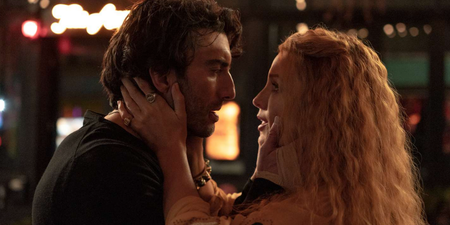We’ve all been there.
The awkward WhatsApp. The aversion to replying. The extortionate cost of something that could absolutely be availed of cheaper, if only everyone made the same amount of money you do.
Some say that nothing exposes diverging life experiences more than social media. Really, it’s how much you’re paid. Anyone can pretend to enjoy a dazzling lifestyle on Instagram, but for most of us the true disparity concerning where you can travel and which restaurants you can frequent depends on money, how much of if you’ve got, and whether the people you want to spend time with most also have it too.
Millennials may just be the generation cursed with extreme disparities when it comes to finances. We all have that one friend who’s making mad money in a high power marketing job (or at least we know of her, and we wonder what her life could possibly be like). We’ve also all got that one friend who just started her career and is still saving up the deposit for her first house share.
Add those two gals to a group chat along with five or so other folk also at varying stages of their careers and you’ve got a nice mix of people who probably love each other very dearly, but will, at some point, struggle to book a holiday together – or even, split the bill at a meal.

Navigating friendships well into your 20s and 30s tends to come with its own gripes. People move away. People change. People stay around, or they don’t. As the years progress, core friendships start to form – the people who you’re likely to spend the rest of your life with – growing alongside them as they find love, start families, buy homes – become more clear.
You know who’s going to celebrate your birthdays and achievements. You know who’s going to be there through breakups, heartache, anxiety, and loss. You know who’s going to stick around.
And as the love and desire to have a relationship with these people remains, lives change. Leaving college, most friendship groups tend to be on the same foot – we’re unemployed, we start our first jobs, we’re trying to figure out what we want to do with our lives.
As the years pass, life stages become a little more blurred. Suddenly, not everyone wants to spend their summer holidays bumming it in hostels across Europe. Some want to eat in the best (most expensive) restaurants. They want to order starters as well as desserts. Some even want to split the bill evenly, even though some people didn’t drink.
The ‘wealth gap’, as Sirin Kale put it in the Guardian in 2020, does in fact have the power to tear even the closest friendships apart. Where many of us would be more than willing to discuss when a friend hurt us, or that their moving to a different country will be difficult, the fact of the matter is people don’t like talking about money – especially women.

Writing for the Financial Times, Claer Barrett says it’s not a lack of money that’s got women quiet, but a lack of confidence. Couple that with the sheer Irishness of it all (is it mortifying to just have a bank account?! Who can say for sure?), and you’ve got a whole generation of women who’re awkwardly avoiding the Revolut group vault because they simply can’t tell their friends “sorry, I can’t afford that right now.” Or the even simpler, “I don’t want to spend my money there.”
Too often too many of us are stuck in restaurants, on holidays, or splitting bills that we don’t want to, and shouldn’t have to. Sure, it might be easier to simply grit our teeth and pull out our cards, but wouldn’t there be a far kenner sense of satisfaction if we felt truly in control of what we were spending, and where we were spending it? Wouldn’t friendships be more likely to thrive if we were just, well, honest with each other?
Naturally, being open about money – and how and where you’re willing to spend it – can be a difficult conversation to have. Who among us really wants to tell a friend that no, sorry, I don’t want to spend two months’ wages on a lacklustre trip to Thailand just so you can live your white woman’s Instagram fantasy? Who’s ever dying for the awkward bill rundown, where each item is ruthlessly scanned to ensure that you’re not paying for Jen’s second espresso martini when everyone else only had one?
No one, but if barriers are set ahead of time, chances are the outcome will be a lot less difficult to swallow. Speaking up and dropping a ‘hey, I’m not sure I can afford that at the moment’ may sound cumbrous, but it’ll save a lot of resentment.
And money too, obviously.


















































